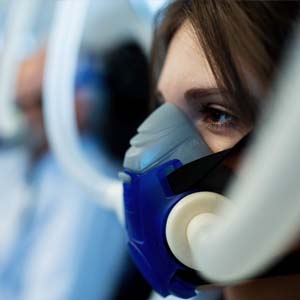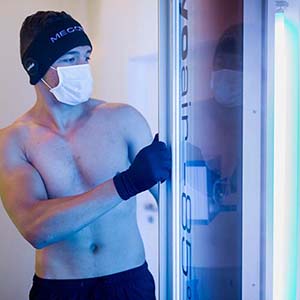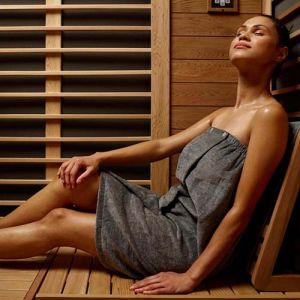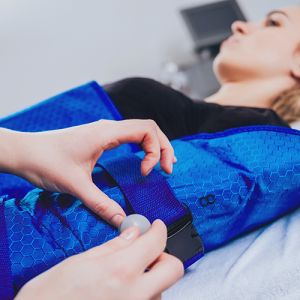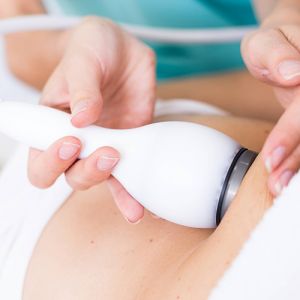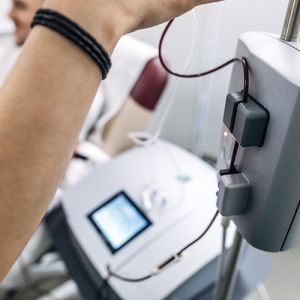Allergic Rhinitis (Hay fever)
Allergic Rhinitis
(Hay fever)
An allergen is a substance that triggers an allergic reaction despite its otherwise benign nature. Hay fever, also known as allergic rhinitis, is an allergic reaction to certain allergens. In seasonal allergic rhinitis, pollen is the most prevalent allergen. These are allergy symptoms that appear as the seasons change.
Understanding Allergic Rhinitis
Allergic rhinitis is an inflammation of the inside of the nose brought on by an allergen such as pollen, dust, mould, or animal skin flakes. It’s a highly prevalent illness that affects almost one out of every five persons in the UK.
Treatment for allergic rhinitis is determined by the severity of your symptoms and how much they interfere with your daily activities.
The goal of most treatments is to alleviate symptoms like sneezing and a blocked or runny nose.
If you have mild allergic rhinitis, you may usually manage your symptoms on your own.
If your symptoms are becoming more severe and impacting your quality of life, or if self-help efforts have failed, you should see your doctor.
What are the
symptoms of
Allergic Rhinitis
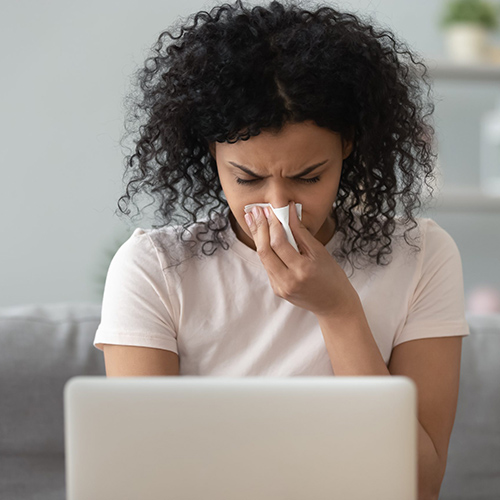
What are the symptoms of
Allergic Rhinitis
The following are some of the most common symptoms of allergic rhinitis:
- Sneezing
- Runny nose
- Blocked-up nose
- Itchy nose
- Coughing
- Sore or scratchy throat
- Itchy eyes
- Watery eyes
- Dark circles under the eyes
- Frequent headaches
- Symptoms of eczema include excessively dry, itchy skin that can blister and weep.
- Hives
- Excessive fatigue
When you come into contact with an allergen, you’ll usually experience one or more of these symptoms right away. Some symptoms, such as persistent headaches and exhaustion, may appear only after long-term allergen exposure. Hay fever does not cause fever.
Some people just have sporadic symptoms. This is more likely to happen when you’re exposed to a lot of allergens. Others have symptoms throughout the year. If your symptoms linger more than a few weeks and don’t seem to be better, consult your doctor about possible allergies.
What Causes
Allergic Rhinitis
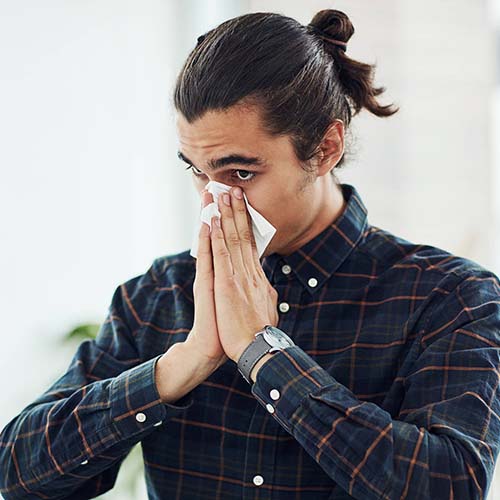
What Causes Allergic Rhinitis
When your body is exposed to an allergen, it produces histamine, a natural molecule that protects your body from the allergen. Allergic rhinitis and associated symptoms, such as a runny nose, sneezing, and itchy eyes, can be caused by this substance.
Other common allergies, in addition to tree pollen, include:
- Grass pollen
- Tree pollen
- Dust mites
- Animal dander, which is old skin
- Cat saliva
- Mould
Pollen can be particularly bothersome during certain seasons of the year. Pollen from trees and flowers is more prevalent in the spring. In the summer and fall, grasses and weeds release more pollen.
How is
Allergic rhinitis
diagnosed?
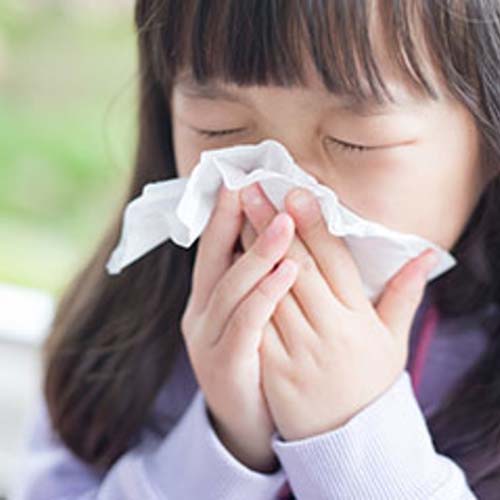
How is Allergic rhinitis diagnosed?
You’ll generally just require a physical checkup if you have slight allergies. Your doctor, on the other hand, may order certain tests to determine the best treatment and preventative plan for you.
One of the most common tests is a skin prick test. Your doctor will apply a variety of substances to your skin to examine how they affect your body. If you’re allergic to something, you’ll usually get a little red bump.
A blood test, commonly known as a RAST (radioallergosorbent test), is also prevalent. The RAST tests your blood for the presence of immunoglobulin E antibodies to certain allergens.
allergic rhinitis
Treatments
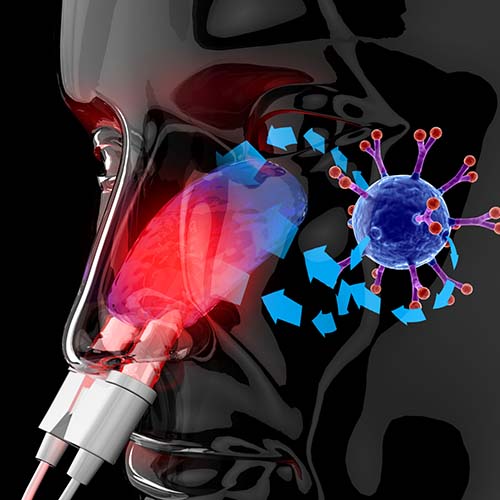
allergic rhinitis Treatments
Allergic rhinitis can be treated in a variety of ways. Medications, as well as home cures and possibly alternative therapies, are among them. Before attempting any new treatment for allergic rhinitis, consult your doctor.
Antihistamines
Antihistamines can be used to treat allergies. They work by preventing the production of histamine in your body.
Antihistamines available over-the-counter (OTC) include:
- fexofenadine (Allegra)
- diphenhydramine (Benadryl)
- desloratadine (Clarinex)
- loratadine (Claritin)
- levocetirizine (Xyzal)
- cetirizine (Zyrtec)
Purchase OTC antihistamines here.
Before taking a new medication, consult your GP. Check to see whether a new allergy medicine may interact with any other prescriptions or medical conditions you’re already taking.
Decongestants
- oxymetazoline (Afrin nasal spray)
- pseudoephedrine (Sudafed)
- phenylephrine (Sudafed PE)
- cetirizine with pseudoephedrine (Zyrtec-D)
Eye drops and nasal sprays
For a limited time, eye drops and nasal sprays can help ease itching and other allergy-related symptoms. However, depending on the product, you may need to avoid using it for an extended period of time.
Overuse of some eye and nasal drops, such as decongestants, might result in a rebound effect.
Inflammation and immunological responses can both benefit from corticosteroids. There is no rebound effect with these. As a long-term, effective strategy to control allergy symptoms, steroid nasal sprays are frequently prescribed. They are available without a prescription and over the counter.
Before beginning any allergy treatment plan, consult your doctor to ensure you’re on the right medicine for your symptoms. Your physician can also assist you in determining which products are intended for short-term usage and which are intended for long-term use.
Immunotherapy
If you have severe allergies, your doctor may consider immunotherapy or allergy shots. This treatment plan can be used in conjunction with medications to help you manage your symptoms. Over time, these shots reduce your immune response to specific allergens. They do, however, necessitate a long-term commitment to a treatment regimen.
A building phase precedes the start of an allergy injection regimen. You’ll visit your allergist for a shot one to three times per week for three to six months during this period to allow your body to become accustomed to the allergen in the shot.
Over the course of three to five years, you will most likely need to see your allergist for shots every two to four weeks. It’s possible that you won’t see a difference for almost a year after this phase begins. It’s possible that your allergy symptoms will lessen or eliminate completely once you reach this phase.
Some people can experience severe allergic reactions to an allergen in their injection. Many allergists request that you stay in the office for 30 to 45 minutes after receiving a shot to ensure that you don’t have an allergic reaction that is severe or life-threatening.
Sublingual immunotherapy (SLIT)
A tablet containing a mixture of numerous allergens is placed under your tongue as part of the SLIT procedure. It operates in the same way that allergy injections do, but without the injection. It is now useful in the treatment of rhinitis and asthma caused by grass, tree pollen, cat dander, dust mites, and ragweed allergies. After an initial visit with your doctor, you can take SLIT therapies at home, such as Oralair for certain grass allergies. Your first SLIT dose will be given at your doctor’s office. The drug, like allergy shots, is taken on a regular basis for a period of time prescribed by your doctor.
Itching in the mouth, as well as ear and throat irritation, are possible adverse effects. SLIT therapies can trigger anaphylaxis in certain people. Consult your doctor about SLIT to determine if it can help you with your allergies. With this procedure, your doctor will need to direct your treatment.
treatment modalities to treat chronic health issues, including:
Hyperbaric oxygen therapy
Hyperbaric oxygen therapy is Clinically Proven to alleviate symptoms of asthma, HBOT creates long term change by modifying gene expression – inflammatory genes are switched off, whilst genes related to growth and repair are switched on.
Cryotherapy
Cryotherapy treatment uses cold temperatures to stop chronic rhinitis symptoms at their point of origin. Cryotherapy interrupts nervous prompts to the nose and reduces stuffy nose symptoms by sending cold temperatures to the hyperactive nerves at the back of the nose.
Ozone therapy
Ozone therapy has natural antiviral, antibacterial, antifungal, anti-mould and anti-parasitic properties. For sinus problems involving infection or allergies, ozone can alleviate these problems. Chronic or acute ear problems can be similarly treated.
Red Light Therapy
Infrared Sauna therapy
Infrared sauna therapy use increases body temperature which in turn strengthens and accelerates our immune response. An enhanced immune system, combined with efficient elimination of toxins via intense sweating, can reduce allergy symptoms and increase overall health.
IV DRIP THERAPY
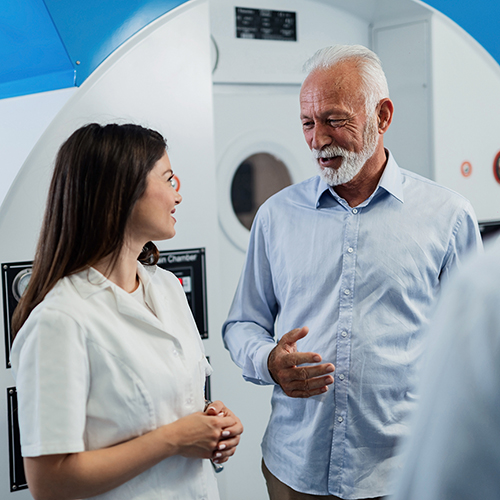
Hyperbaric oxygen therapy
Hyperbaric oxygen therapy is Clinically Proven to alleviate symptoms of asthma, HBOT creates long term change by modifying gene expression – inflammatory genes are switched off, whilst genes related to growth and repair are switched on.
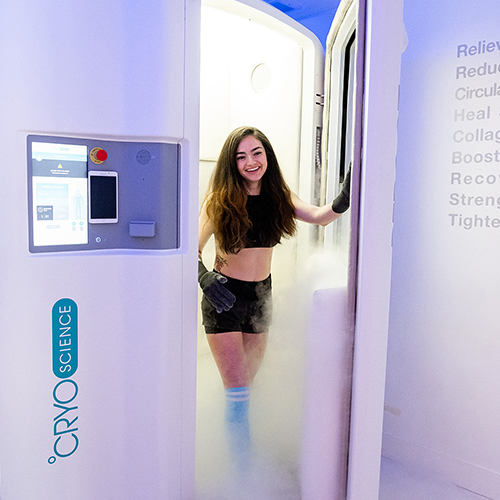
Cryotherapy
Cryotherapy treatment uses cold temperatures to stop chronic rhinitis symptoms at their point of origin. Cryotherapy interrupts nervous prompts to the nose and reduces stuffy nose symptoms by sending cold temperatures to the hyperactive nerves at the back of the nose.
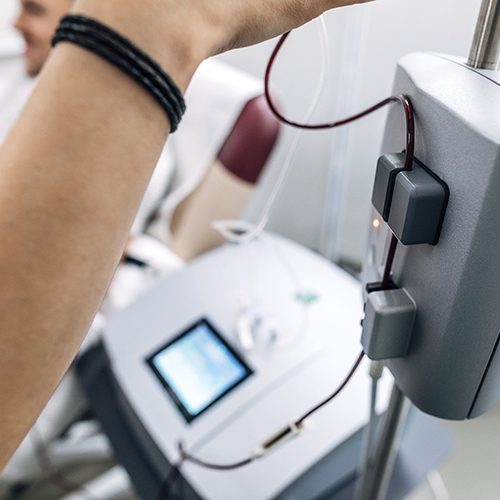
Ozone therapy
Ozone therapy has natural antiviral, antibacterial, antifungal, anti-mould and anti-parasitic properties. For sinus problems involving infection or allergies, ozone can alleviate these problems. Chronic or acute ear problems can be similarly treated.
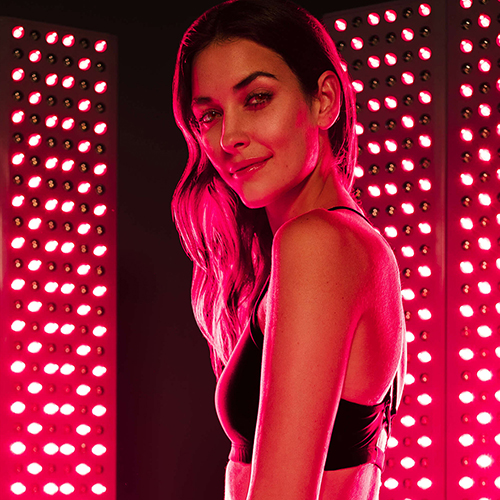
Infrared Sauna therapy
Infrared sauna therapy use increases body temperature which in turn strengthens and accelerates our immune response. An enhanced immune system, combined with efficient elimination of toxins via intense sweating, can reduce allergy symptoms and increase overall health.

Infrared Sauna therapy
Infrared sauna therapy use increases body temperature which in turn strengthens and accelerates our immune response. An enhanced immune system, combined with efficient elimination of toxins via intense sweating, can reduce allergy symptoms and increase overall health.
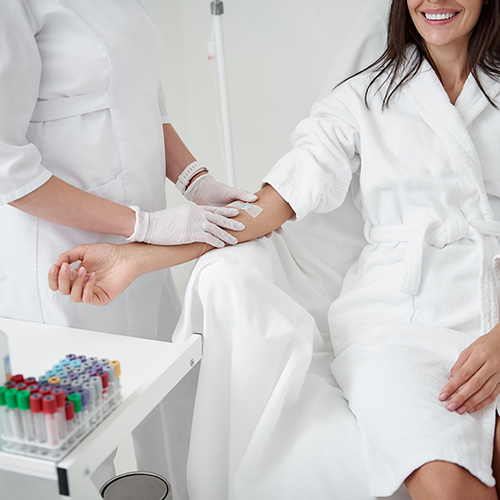
IV DRIP THERAPY
What are the
types of
allergic rhinitis
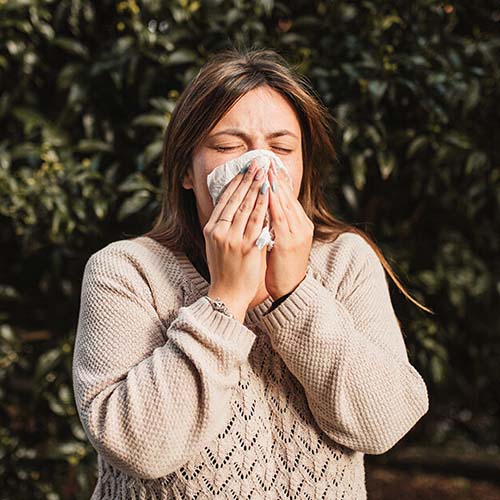
What are the types of allergic rhinitis
Seasonal and permanent allergic rhinitis are the two forms of allergic rhinitis. Seasonal allergies are most common in the spring and autumn and are primarily triggered by outdoor allergens such as pollen. Perennial allergies can strike at any time of year, in reaction to indoor allergens such as dust mites and pet dander.
Home remedies
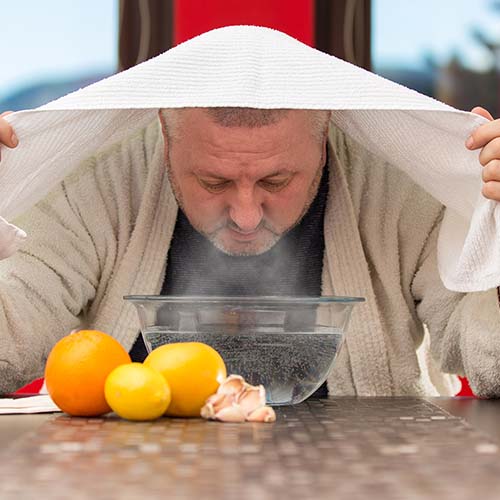
Home remedies
Alternative and complementary medicine
More people with allergies are looking for “natural” alternatives to treat hay fever symptoms because of concerns about possible negative effects. It’s crucial to note, though, that any prescription, even if it’s deemed natural, can cause negative effects. Alternative and complementary medicine can be used in addition to home treatments. The disadvantage of these treatments is that there is little evidence to back up their safety and efficacy. It may also be challenging to determine or achieve the proper dosage.
Some of the treatments listed below may help manage seasonal allergies, according to the NHS, but additional research is needed. Before attempting any of the following, consult your doctor:
- Acupuncture
- Nasal saline irrigation
- Butterbur supplements
- Honey (choose raw, organic varieties)
- Probiotics
Despite the fact that many alternative remedies are made from plants and other natural ingredients, they may mix with drugs and produce side effects. Use them with caution and consult your doctor beforehand.
Allergic rhinitis
in children
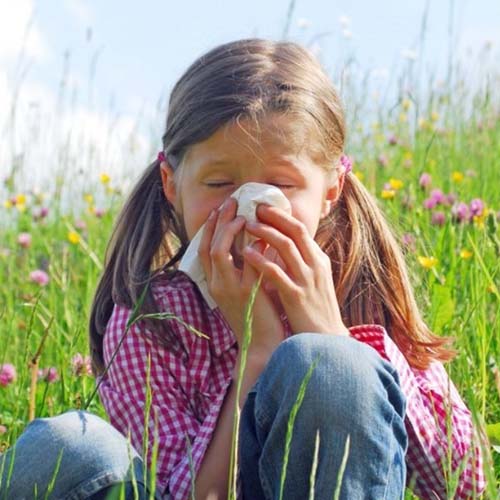
Allergic rhinitis in children
Allergic rhinitis can strike children as well, and it usually strikes before the age of ten. If your child experiences cold-like symptoms at the same time every year, they are most likely suffering from seasonal allergic rhinitis.
Children’s symptoms are comparable to those of adults. Allergy conjunctivitis is a condition that causes children’s eyes to become watery and bloodshot. Your child may have asthma if you detect wheezing or shortness of breath in addition to other symptoms.
Consult your doctor if you suspect your child has allergies. It’s critical to get the right diagnosis and treatment.
If your child suffers from severe seasonal allergies, keep them inside when pollen counts are high to limit their exposure to allergens. During allergy season, they should wash their clothes and linens frequently and vacuum on a regular basis. There are a variety of treatments available to help your child with allergies. However, even in tiny amounts, some medications can produce unwanted effects. Before giving your child any over-the-counter allergy medicine, consult your GP.
allergic rhinitis
Risk Factors & Complications
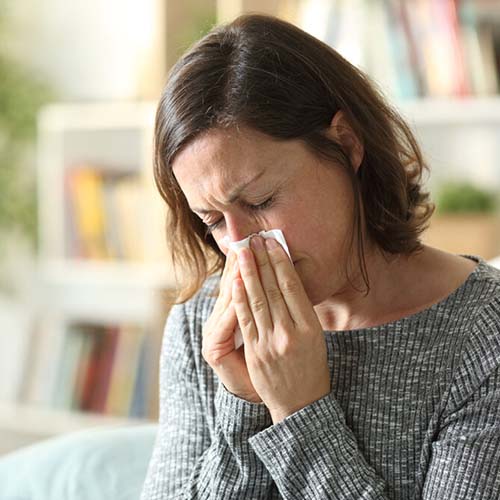
Allergic Rhinitis Risk factors & Complications
Risks
Allergies can affect anyone, but if your family has a history of allergies, you’re more likely to get allergic rhinitis. Allergic rhinitis is more likely if you have asthma or atopic eczema.
This illness can be triggered or worsened by a variety of environmental circumstances, including:
- Cigarette smoke
- Chemicals
- Cold temperatures
- Humidity
- Wind
- Air pollution
- Hairspray
- Perfumes
- Colognes
- Wood smoke
- Fumes
Complications
Unfortunately, allergic rhinitis cannot be prevented in and of itself. When it comes to allergies, treatment and management are essential for a high quality of life. Hay fever can lead to a variety of problems, including:
- Inability to sleep from symptoms keeping you up at night
- Development or worsening of asthma symptoms
- Frequent ear infections
- Sinusitis or frequent sinus infections
- Absences from school or work because of reduced productivity
- Frequent headaches
Antihistamine side effects might also cause complications. Drowsiness is the most common symptom. Headache, anxiety, and insomnia are some of the other negative effects. Antihistamines can have gastrointestinal, urinary, and circulatory side effects in rare circumstances.
Allergy prevention
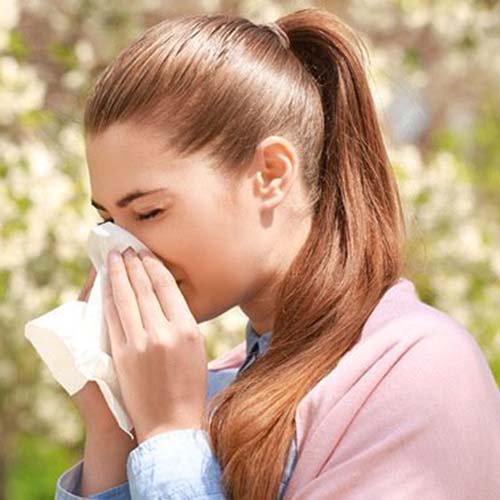
Allergy prevention
Managing your allergies before your body has a chance to react negatively to substances is the best approach to avoid allergy symptoms. Consider the following precautions for the allergens to which you are allergic:
Pollen
Antihistamines should be started prior to the onset of seasonal allergy symptoms. If you’re allergic to tree pollen in the spring, for example, you should start taking antihistamines before an allergic reaction occurs. Stay inside during high pollen hours and shower as soon as possible after being outside. During allergy season, keep your windows closed and avoid drying any washing on the line.
Dust mites
You can take steps to ensure that your home is not a conducive setting for dust-mite development to decrease dust mite exposure. Rather than sweeping, wet mop hard floors. Use a vacuum with a HEPA filter if you have carpet. You should also clean hard surfaces frequently and wash your bedding in hot water once a week. To reduce dust mite exposure while sleeping, use allergen-blocking pillows and cases.
Pet dander (shed skin particles)
You should try to limit your exposure to any animals to which you are allergic. If this isn’t practicable, keep all surfaces clean as often as possible. After petting a pet, wash your hands quickly and keep your furry pals off your bed. You should also wash your clothes after visiting a pet-friendly home.
Allergic rhinitis
Summary
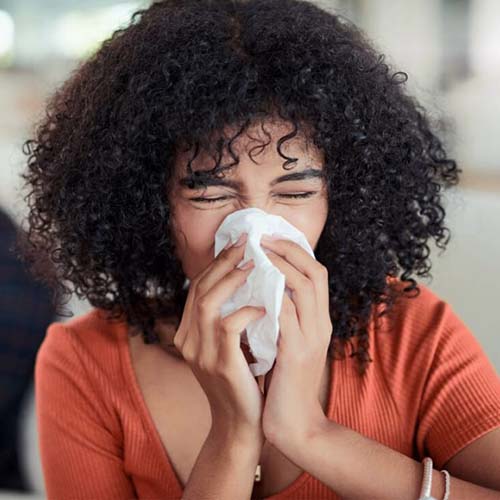
Allergic rhinitis Summary
The treatment’s outcome is determined by your medical condition. Seasonal allergic rhinitis is usually mild, and drugs can help you control it. Severe cases, on the other hand, will almost certainly necessitate long-term treatment.


